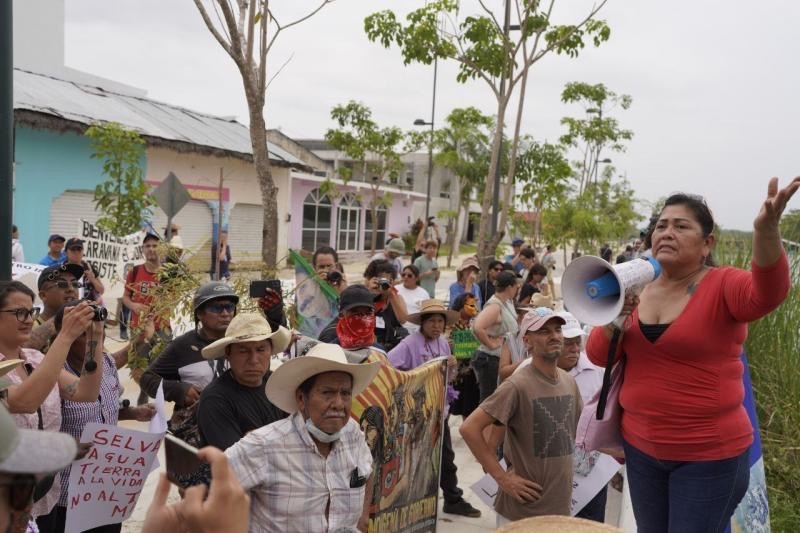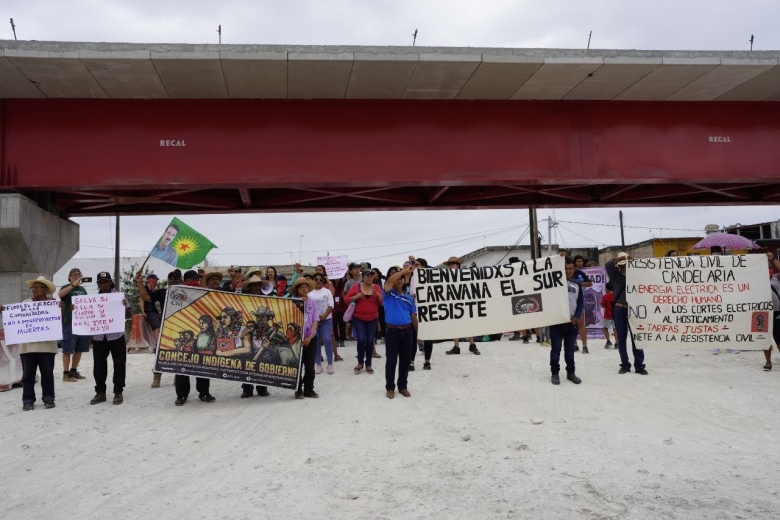May 5 Candelaria, Campeche
7 am, Candelaria. The compañeras serve us breakfast of tamales and coffee after having received us the night before at 10 pm to settle us in for the night. I know they slept even less than we did and am moved once again by the graciousness and attention to our needs from all the sisters in struggle that we have encountered along the way. I am lucky to get to spend a little time helping slice bread for the tortas they are preparing for our lunch, giving us the opportunity to chat and exchange personal stories, a comfortable women’s space of sharing and conviviality.

After breakfast we drive through town to our meeting place, along what used to be the old railway, a route I drove four years ago. I am shocked by the transformation. Where once there was a lively neighborhood with rows of modest homes, taco stands, bicycle vendors selling aguas frescas, small shops selling clothes, brooms and anything else you might need, enormous concrete pillars now sustain a massive throughway that looms far overhead. Monster machines, mountains of debris and construction materials divide the town. I am reminded of the Bart train in West Oakland that cuts through what was once a thriving Black community known for its jazz clubs and Black-owned business.
The term megaproject has never seemed more apt. The scale of the construction feels completely out of proportion in this town of 45,000. Later on the road out of town, we will see another side of this multifaceted infrastructure project: a mining site by the side of the road where materials for the concrete structures are being extracted. The dimensions of the mine, the size of the machines, seem to come from another planet compared to the small village rural surroundings. As our compas point out, all of this destruction in the name of progress and development will serve to line the pockets of capitalists, while the locals will be left holding the bag of environmental damage and disruption of their forms of life .

Sara Gomez, the CNI consejala of the region, takes us on a march through town to the edge the opulent Candelaria river that flows through this lush region. At the point where the train tracks cross it, the banks have been built up, leaving a mere 10 meters for the water to pass through. There has been no environmental study of the potential impacts of this constriction of the river flow. Sara talks about the problems she has noticed: floods upstream, lack of water downstream. She laments the days of carefree swimming in the river. A construction worker overhears, and assures us that it will all be fixed again when the construction project is over. We don’t really have much faith in the promises of the government, I respond. But it’s not PRI or PAN, they say, it’s AMLO.
To myself, I rage: fuck AMLO and his promises of progress and development.
For more info on local resistance to the Maya train, see the following video.

